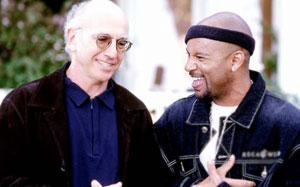For all Year 12 students...
Don't forget to be on time on Wednesday 15th - 8.45am outside school - and to bring pen/paper etc.
Homework to do this week in relation to the Media Conference...
TASK ONE
Before the conference - read the three related internet articles and info about the key media professionals you'll be seeing and hearing at the following links...
Politics and the Media
A special report from The Guardian newspaper entitled 'The Fourth Estate Under Fire' that will prepare you for the session by Polly Toynbee, one of the top female journalists in the UK.
Bollywood - An Insider's Guide
A brief summary of some of the key points that Fuad Omar - the highly regarded writer on Indian Cinema - will raise in his presentation.
New Media Technology
A Guardian article outlining 'Why The Internet Will Revolutionise Politics'. This is the topic that will be covered by the Guardian Media Editor, Matt Wells.
TASK TWO
Then respond to the questions posed below, making use of your notes from the conference and the articles posted above. Each answer can be brief - a sentence or two - and should be submitted in the comments at the end of this posting.
This needs to be done by Monday 20th November for 12D1 and 12C2, and for Tuesday 21st November for 12C1.
1. Politics and the Media – reporting or creating the news?
(Polly Toynbee, Observer and Guardian)
a. Do the media determine or influence the political agenda?
b. Do the media turn politics into the cult of the personality?
c. Are the media more concerned with what is “of interest to the public” rather than with what is in the “public interest”?
d. Who is responsible for political spin - the politicians or the media?
2. Why is Bollywood so popular?- a comparative look at World Cinema
(Fuad Omar, Bollywood Director and Producer)
a. Just what is “Bollywood”?
b. What are the significant differences between “Bollywood” and “Hollywood”?
c. How has Bollywood influenced film making internationally?
d. Is there a “British Bollywood?”
3. How effective is new media technology?
(Matt Wells, Media Editor, The Guardian)
a. To what extent have new technologies led to information overload?
b. How can we trust sources of information with increasing use of podcasting, blogs and raw news from the public?
c. Do new technologies democratise access and polarise views?
TASK THREE
Also, remember that you also need to type up your conference notes for each of the seven lectures. These have to be ready for the same time as the answers to the questions.
Don't forget to be on time on Wednesday 15th - 8.45am outside school - and to bring pen/paper etc.
Homework to do this week in relation to the Media Conference...
TASK ONE
Before the conference - read the three related internet articles and info about the key media professionals you'll be seeing and hearing at the following links...
Politics and the Media
A special report from The Guardian newspaper entitled 'The Fourth Estate Under Fire' that will prepare you for the session by Polly Toynbee, one of the top female journalists in the UK.
Bollywood - An Insider's Guide
A brief summary of some of the key points that Fuad Omar - the highly regarded writer on Indian Cinema - will raise in his presentation.
New Media Technology
A Guardian article outlining 'Why The Internet Will Revolutionise Politics'. This is the topic that will be covered by the Guardian Media Editor, Matt Wells.
TASK TWO
Then respond to the questions posed below, making use of your notes from the conference and the articles posted above. Each answer can be brief - a sentence or two - and should be submitted in the comments at the end of this posting.
This needs to be done by Monday 20th November for 12D1 and 12C2, and for Tuesday 21st November for 12C1.
1. Politics and the Media – reporting or creating the news?
(Polly Toynbee, Observer and Guardian)
a. Do the media determine or influence the political agenda?
b. Do the media turn politics into the cult of the personality?
c. Are the media more concerned with what is “of interest to the public” rather than with what is in the “public interest”?
d. Who is responsible for political spin - the politicians or the media?
2. Why is Bollywood so popular?- a comparative look at World Cinema
(Fuad Omar, Bollywood Director and Producer)
a. Just what is “Bollywood”?
b. What are the significant differences between “Bollywood” and “Hollywood”?
c. How has Bollywood influenced film making internationally?
d. Is there a “British Bollywood?”
3. How effective is new media technology?
(Matt Wells, Media Editor, The Guardian)
a. To what extent have new technologies led to information overload?
b. How can we trust sources of information with increasing use of podcasting, blogs and raw news from the public?
c. Do new technologies democratise access and polarise views?
TASK THREE
Also, remember that you also need to type up your conference notes for each of the seven lectures. These have to be ready for the same time as the answers to the questions.






